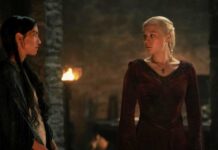Cracks in the veneer of board unity were exposed in November when directors were forced to deal with the fallout from revelations that Nine chief executive Hugh Marks was in a relationship with a female member of his executive team.
The board’s balance was disrupted again this week by whistleblower claims that Falloon misused a corporate golf club membership – a matter that is now the subject of an independent investigation.
The golf-gate drama makes Falloon’s position on the Nine board and also his chairmanship of Nine’s listed digital real estate subsidiary, Domain, more tenuous.
The official line from Nine is that Rosen will remain a director, but watch this space.
If she were to follow Allaway and leave, it would cement Costello’s control. The chairman always has the biggest say in any decision to appoint a new chief executive. The absence of Fairfax directors would make this a formality for Costello, giving him an unfettered choice of Marks’ replacement.
Shareholders liked Marks and are happy with the returns being produced. They are dumbfounded as to why a company at the peak of its success is struggling with board politics, although their concerns extend mostly to the matter of choosing the new boss (some argue Marks should not have resigned).
Loading
Ultimately, the board instability is the result of poor decisions made at the time of the merger and mostly on the Fairfax side.
In a merger of equals, as the historic deal was outwardly depicted, it is usual for the chairman to come from one company and the chief executive to be drawn from the other.
But when Nine and Fairfax got together, both positions were filled by Nine. The board subsequently squandered the opportunity to stabilise itself by appointing fresh outside directors to act as tie-breakers.
Loading
Having missed out on the chief executive role, the Fairfax camp believed it would be given the chairmanship in a year or two. Falloon waited in the wings for his ascension.
Almost three years later and Costello, who learned his political leadership skills from the rough and tumble of Canberra, remains in the position.
Costello was famously on the losing side of a pact with John Howard to take the prime ministership, but at Nine he now appears entrenched.
Marks’ sudden resignation last year spurred Nine’s two largest shareholders into action. Costello and Marks enjoy support from the company’s largest shareholder, billionaire WIN Corp owner Bruce Gordon. The media group’s other major shareholder, fund manager Pendal, communicated concerns to Costello about the board split. It offered him support to do what needed to be done to rectify the situation.
The chairman has known for months that he has the numbers. How this will affect the decision on who replaces Marks remains to be seen.
This is currently a three-way battle between publishing and digital chief Chris Janz, a former Fairfax executive; the head of streaming platform (and presumptive Nine candidate) Mike Sneesby; and outsider Carl Fennessy, who was previously in charge of production house Endemol Shine Australia.
The board instability has led to misplaced suggestions that Marks will retain his job, but the reality is that he has essentially checked out of Nine and is scheduled to leave mid-year. He didn’t attend the post-result investor roadshow briefings that were instead hosted by chief financial officer Maria Phillips, Janz and Sneesby.
Meanwhile, true to the television series famous tagline, board members are discovering that when you play the Game of Thrones you win or you die. There is no middle ground.
Business Briefing
Start the day with major stories, exclusive coverage and expert opinion from our leading business journalists delivered to your inbox. Sign up for the Herald‘s here and The Age‘s here.
Elizabeth Knight comments on companies, markets and the economy.
Most Viewed in Business
Loading



















![[Book Review] The Blade Itself (The First Law Trilogy) by Joe Abercrombie](https://bendthekneegot.com/wp-content/uploads/2018/01/1516047103_maxresdefault-218x150.jpg)


















